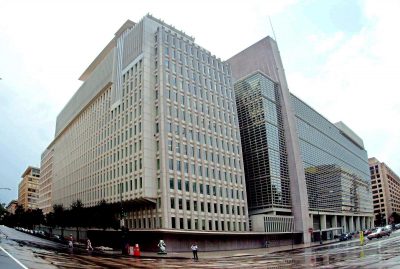A world Bank report has disclosed that Nigerians and other residents in the country have received a total of N33.6billion or $21billion in the year 2012 in remittances from their relatives, friends and business associates outside the country.
According to the latest edition of the World Bank’s Migration and Development Brief, issued at the weekend, Nigeria accounted for 67 per cent of the $31billion total inflows to sub-Saharan Africa last year, followed by Senegal and Kenya.
The report noted that growth from remittance flows to sub-Saharan Africa has been modest despite the regions recovery from the contraction associated with the global financial crisis.
The World Bank said: “In 2012, the region is estimated to have received about $31 billion in remittances, only about a one per cent increase over 2011. Nigeria is by far the largest recipient of remittances in the region, accounting for about 67 per cent of the inflows to the region in 2012, followed by Senegal and Kenya.
Zero growth in flows to Nigeria in 2012 is partly attributable to the feeble labour market recovery of its major remittance source countries in Europe, the UK in particular. Remittance flows to Nigeria and the rest of the region are expected to grow significantly in the coming years to reach about $39 billion in 2015.”
The report stated that officially recorded remittance flows to developing countries grew by 5.3 per cent to reach an estimated $401 billion in 2012.
Furthermore, remittances to developing countries are expected to grow by an annual average of 8.8 per cent for the next three years and are forecast to reach $515 billion in 2015.
According to the findings, many migrants send money and goods through people or informal channels, but the true size of remittances are much larger than these official figures.
The top recipients of officially recorded remittances for 2012, according to the report, are India ($69 billion), China ($60 billion), the Philippines ($24 billion), Mexico ($23 billion) and Nigeria and Egypt ($21 billion each). Other large recipients include Pakistan, Bangladesh, Vietnam and Lebanon.
“As a percentage of GDP, the top recipients of remittances, in 2011, were Tajikistan (47 per cent), Liberia (31 per cent), Kyrgyz Republic (29 per cent), Lesotho (27 per cent), Moldova (23 per cent), Nepal (22 per cent), and Samoa (21 per cent),” the report added.
Besides, the World Bank said remittance flows to developing countries have more than quadrupled since 2000, adding that global remittances, including those to high-income countries, are estimated to have reached $514 billion in 2012, compared to $132 billion in 2000.
With remittance inflows of an estimated $49 billion in 2012 (an upward revision of about US$2 billion from previous estimates), the Middle East and North Africa (MENA) region experienced the fastest expansion of remittances in 2012, growing by 14.3 percent over 2011. Egypt, which accounted for over 40 per cent of total remittance inflows to the region, has seen a six-fold increase in remittances over the last eight years, making it the largest recipient in the region, ahead of Lebanon, Morocco, Jordan and Tunisia.
The report further disclosed that the high cost of sending money through official channels is an obstacle to the utilization of remittances for development purposes, as people seek out informal channels as their preferred means for sending money home. The global average cost for sending remittances it added, was 9 per cent in the first quarter of 2013, broadly unchanged from 2012.
“Migration and remittances offer a vital lifeline for millions of people and can play a major role in an economy’s take-off. They enable people to partake in the global labor market and create resources that can be leveraged for development and growth. But they are also a source of political contention, and for that very reason deserving of dispassionate analysis,” said Kaushik Basu, the World Bank’s Chief Economist and Senior Vice President for Development Economics, as he participated in an event to mark the launch of KNOMAD. “The World Bank has played a critical role in migration and remittance research and KNOMAD will be critical in taking this agenda forward.”
Also commenting on the topic, Hans Timmer, Director of the Bank’s Development Prospects Group, said: “The role of remittances in helping lift people out of poverty has always been known, but there is also abundant evidence that migration and remittances are helping countries achieve progress towards other Millennium Development Goals (MDGs), such as access to education, safe water, sanitation and healthcare.”

